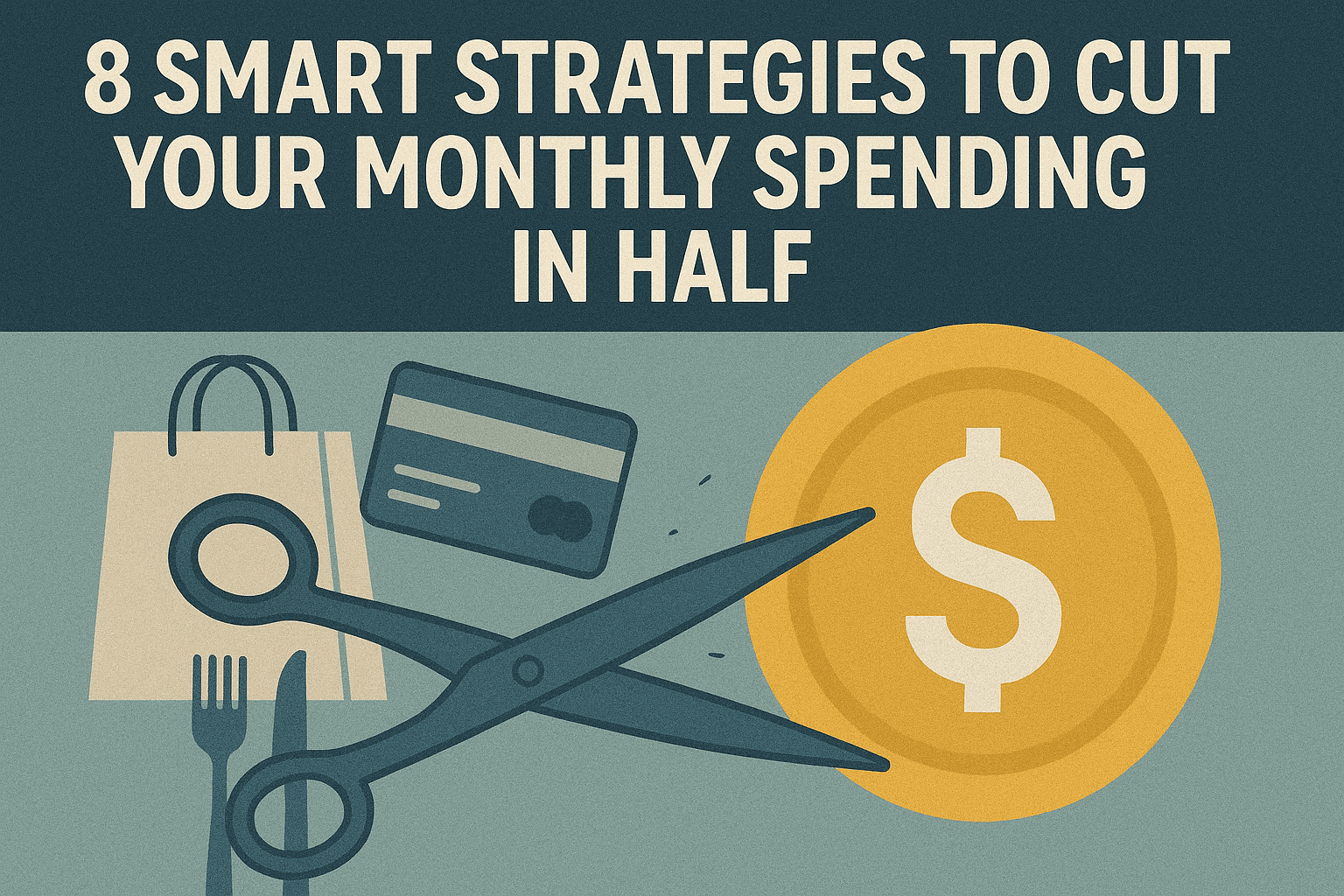
Your monthly expenses drain your bank account faster than you think. Most people spend without knowing where their money goes, then wonder why they're broke by month's end. Reducing expenses isn’t about cutting joy, it’s about redirecting your money toward what matters most to you.
These eight strategies show you how to reduce monthly expenses and keep more money in your pocket.
You can't fix what you don't measure. Most people guess at their spending and get it wrong by hundreds of dollars. Start tracking today.
Quick setup:
Manual option: Use a simple spreadsheet. Write down every purchase the moment you make it. That coffee, parking fee, and impulse buy at the store—all of it.
Small purchases kill budgets. Three £4 coffees per week cost you £624 per year. Track them all. Notice patterns—are there certain days, moods, or times of day when you overspend? Identifying these triggers helps you stop leaks before they happen.
You can also build a personal financial plan to stay on track over the long term.
Check your bank statements from the last three months. Look for recurring charges you forgot about. That streaming service you used twice? Gone. The gym membership you haven't used since January? Cancelled.
Common subscription traps:
Average households waste £300 annually on forgotten subscriptions. Cancel five subscriptions and save £25–50 monthly. Consider trying a no-spend challenge for a month to break the habit of unconscious spending.
Restaurant meals cost 3–5 times more than home cooking. A £12 takeaway costs £2–3 to make at home. Cook dinner at home five nights per week instead of three, and you'll save £200+ monthly.
Start simple:
Skip the elaborate meal plans. Simple, consistent cooking beats complex recipes you'll abandon. Think of this as a quick win with compounding benefits—the savings add up monthly, and over time, you’ll also cut down on food waste and improve health.
Insurance companies count on you never shopping around. Your loyalty costs you money. Get quotes from three providers annually for car, home, and health insurance.
Money-saving moves:
Review your coverage whenever you hit a life milestone: buying a home, getting married, or starting a family, since your needs and available discounts can change.
Most people save 15–30% by switching providers or adjusting coverage. If you're a physician, review whether disability insurance offers better protection for your income than expected.
Your mobile plan probably costs more than needed. Review your data usage from the past six months. If you use less than 80% of your allowance, downgrade your plan.
Phone bill fixes:
Call your internet provider. Ask for current promotions. Threaten to cancel if they won't match competitor prices. This works more often than you'd expect.
Every mile you drive costs money—fuel, wear, insurance, and depreciation. Walk, bike, or take public transport when practical.
Transport savings:
Driving 200 fewer miles monthly saves £50–80 in total vehicle costs. That money could be redirected toward building an emergency fund or saving for a child. Even better, set up an automatic transfer for the exact amount saved on fuel into your emergency fund or investment account.
Your grocery bill offers huge savings potential. Most people shop without a plan and waste 30% of what they buy.
Grocery strategies:
Try the 24-hour list rule: if you see a non-essential item in-store, write it down and only buy it if you still want it a day later.
Shop the perimeter first: fresh produce, meat, and dairy. The middle aisles contain expensive processed foods that bust budgets.
Companies expect you to pay full price forever. They're wrong. Call and negotiate your cable, internet, insurance, and credit card rates annually.
Negotiation script: "I've been a customer for X years and want to stay, but I'm reviewing my expenses. What promotions or discounts can you offer to reduce my bill?"
If they say no: "I found a competitor offering the same service for £X less. Can you match that price or should I switch?"
Be polite but firm. Ask for a supervisor if the first person can't help. This saves most people £30–100 monthly across all bills. For physicians and high earners, exploring side gigs can also help increase income without adding financial pressure.
Turn it into a challenge with friends. See who can lower the most bills in a month and share tips.
Pick one strategy and start today. Don't try all eight at once—you'll get overwhelmed and quit. Master one, then add another.
Track your progress weekly. Small wins build momentum for bigger changes. Most people who follow these strategies cut their monthly expenses by 25–40% within six months.
The goal isn't to live like a monk. It's to spend money on things you value and eliminate waste on things you don't. For more lifestyle-aligned guidance, consider reading our top financial planning tips for young adults.
At Planwell, we built a fully automated AI financial planner to help you make smart money choices. Our platform considers your lifestyle, retirement goals, and personal needs to create a plan that works for your life.
We show you exactly how much home you can afford while keeping your complete financial picture in focus. Our prototype is live and ready to use from our home page.
Try our free beta today and start making better financial decisions with tools designed for physicians.